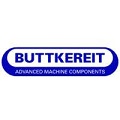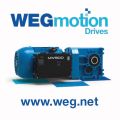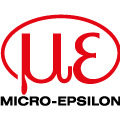
Posted to News on 6th Jul 2007, 18:53
Environmental considerations in relation to bearings
This article from NSK discusses various elements of bearing design, including materials, geometrical design, lubricants and seals, all of which impact on the environmental performance of bearings.
Rolling bearings are indispensable to machinery and equipment; their function is crucial in the role of transferring rotational energy with minimal energy loss - in other words, they have an important impact on energy conservation. At the same time, bearings can play a major role in the preservation of natural resources by providing enhanced operating life, and also through downsizing as a result of the combination of improved materials and optimised designs.
The life of rolling bearings is usually determined by the severity of flaking, a fatigue phenomenon where a part of the bearing surface flakes off as a result of repeated stress loads. Rolling bearing life can be determined by researching the causes of flaking and taking preventive measures accordingly. Flaking is a result of two types of bearing defects: internal defects (non-metallic inclusions in bearing material) and bearing raceway surface defects (indentations caused by contaminants). Flaking caused by internal defects can be improved with extra-pure and cleaner steels, such as the Z steel and EP steels developed by NSK. These reduce non-metallic inclusions that cause defects, thus extending bearing life.
Flaking caused by raceway surface defects can be improved by optimising the retained austenite content in bearing raceway surfaces, as is the case with NSK's TF, HTF RTF, and STF steels. This results in reduced stress concentration from indentations and, once again, improved life. The corollary of this is less demand on the environment, in terms of raw material usage and preservation of natural resources.
Surface optimisation
Like new materials technology, surface optimisation plays a key role in reducing demands on the environment through extended bearing life. However, surface optimisation goes further by reducing the energy-consuming friction that ultimately leads to wear and, potentially, premature failure. In order that a surface design can deliver reduced friction and longer bearing life, machining processes (barrelling and honing), as well as surface roughness, play important roles.
A good surface geometry leads to optimum oil film formation, while the machining processes ensure good compressive stress levels and high resistance to abrasion and excessive wear.
Complementing the role of surface optimisation, improved bearing design contributes greatly to energy conservation. Reducing the frictional resistance of rolling bearings is an endless challenge. However, as part of its commitment to achieving this goal in automotive applications, NSK has developed a theory for frictional resistance for tapered roller bearings that run in rolling and sliding contact at their ribs and roller ends. This theory has been used to reduce frictional torque by as much as 40 per cent in automotive power transmissions, without adversely affecting bearing life and rigidity.
Frictional torque halved
Low-torque designs that reduce friction have also been developed for more widely used ball bearings. These designs, which are complemented by new low-torque contact seals and greases, are reducing torque by up to 50 per cent in electric motors - which is a critical area of power consumption, accounting for two-thirds of all industrial usage.
Furthermore, low-torque ball bearings have also been developed to improve the efficiency of motors used in domestic appliances, such as air conditioners and vacuum cleaners, in order to reduce their power consumption. These types of bearings have the same outside diameters and width as the global standard 608 ball bearings, but have improved internal specifications, including ball diameter and PCD. Although the dynamic load of the new bearings is lower, this is not a problem, as torque reduction is the main consideration. That this is achieved is evidenced by the fact that torque for these bearings is 40 to 50 per cent lower than that of conventional bearings.
Oils and greases
Lubrication is also an important consideration in achieving low torque in bearings. NSK's experience with the automotive industry, which has had a historic requirement for low-torque bearings to ensure efficient cold starts, has proved pivotal in this area. Originally developed for use on commutator motor shafts, NSK's EA3 grease is a poly-alpha-olefine type, which helps to reduce torque and maximise energy efficiency.
In addition to developing special low-torque greases, NSK has considered the problems of using grease lubrication per se. Grease is used widely for the lubrication of rolling bearings and ball screws, and it can contaminate the soil, rivers, or sea if it leaks or is disposed of improperly. This could inflict considerable harm on the natural environment.
NSK has addressed this problem with its Excella Green grease, which is readily decomposed by bacteria, and is claimed to contain no harmful substances. Excella Green is a long-life grease developed for bearings in small- to medium-sized general-purpose motors, air conditioner fan motors, and IT devices. It is 60 per cent or more degradable than conventional greases, as determined by a 28-day biological oxygen demand test in bacteria-activated sludge, which is an effect evaluation index for an ecosystem.
Seals and shields
Grease, of course is retained within bearings by seals and shields, and these units also play a role in energy conservation: a seal or shield that is too tight a fit will lead to friction in a bearing and consequent energy loss. The challenge in the bearing market has been to develop high-speed seals that minimise bearing friction.
This has led to the development of NSK's V type seal. The V seal is a design innovation that seals effectively without an increase in torque or operating temperature. It has better sealing capability than a shield, and a speed capability comparable to that of a shielded bearing. The non-contact lip of the V design reduces drag in the bearing - which is an important advantage where power loss is critical, as in small electrical motors.






























